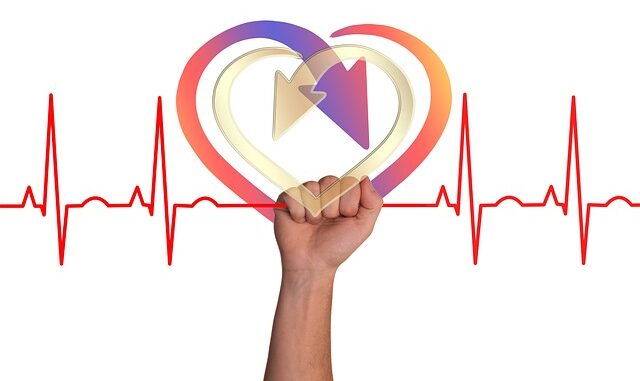
Summary
This article emphasizes the increased risk of heart disease for individuals with diabetes, particularly seniors. It highlights the importance of early and proactive management of diabetes to mitigate heart-related complications and improve overall health outcomes. Modern advancements in geriatric care, such as remote monitoring devices and telehealth, offer new avenues for proactive and personalized care.
Main Story
Okay, so, diabetes and heart disease, they’re often like two peas in a pod, aren’t they? It’s a worrying situation, especially for our older population. You see, people with diabetes, they’re actually twice as likely to develop heart disease. That means higher risks of heart attacks, strokes, and heart failure. And the longer someone has diabetes, well, the greater that risk just gets.
It’s kind of like a snowball effect. High blood sugar levels, over time, they can really do a number on your blood vessels, damaging them. This damage makes the vessels susceptible to fatty build-up and narrowing. Consequently, blood flow gets restricted, and that’s how you end up with a whole host of cardiovascular issues.
So, what’s the answer? Early diagnosis and proactive management of diabetes is crucial. It’s not just about hoping for the best, you know? Controlling blood sugar levels? That’s paramount. That’s achievable with medication, sure, but also with careful attention to diet and consistent exercise. Regular check-ups for high blood pressure and cholesterol levels are also vital, because, honestly, those things often come along for the ride with diabetes, exacerbating the heart risks. And, of course, adopting a heart-healthy lifestyle—regular physical activity, a balanced diet, and a strict ‘no-smoking’ policy—it’s all just so incredibly important.
Speaking of progress, it’s incredible how technology is changing geriatric care. It’s offering some really promising solutions for managing diabetes and keeping seniors’ hearts healthy. Remote monitoring devices, for example – wearable sensors and smartwatches. They track everything, vital signs, activity, and sleep patterns. The data isn’t just interesting, it’s actually incredibly valuable for both the individual and the healthcare provider. Plus, caregivers, health professionals, and family can keep tabs on things detecting any worrying changes. Telehealth also gives seniors the flexibility to consult with doctors remotely, it’s brilliant for removing the need for constant clinic trips and it ensures everyone can get the advice they need, when they need it.
But it doesn’t stop there. Smart home technology? It is a game changer. It’s creating much safer and more convenient living environments. Voice-activated assistants, smart lighting, and fall detection systems, things like that, boost independence while adding some much-needed security. Then, you’ve got medication management systems. Automated pill dispensers and reminder apps simplify routines and improve adherence; crucial when managing diabetes and other chronic conditions. You know, I remember my grandma, bless her, always misplacing her pills. Something like that could have really helped her!
Now, personalized care plans, they’re becoming the norm, and that’s great. They’re all about focusing on individual needs and preferences. Often, they’ll incorporate things like remote health monitoring, in-home rehabilitation, and tailored support services. These kind of approaches? They really empower seniors to take control of their health proactively, maintaining their independence in their own homes, which I think is important. Early intervention, coupled with this personalized care and innovative tech, it really can make a significant difference to their quality of life, and lower the risk of heart issues.
That said, let’s not forget, that essential lifestyle changes are still absolutely fundamental. Regular physical activity does wonders. It increases the body’s sensitivity to insulin, improves blood sugar control, and of course, lowers heart disease risks. A healthy diet – lots of fruits, vegetables, and whole grains – it’s critical for maintaining a healthy weight and controlling blood sugar levels. And, you guessed it, quitting smoking. That’s absolutely non-negotiable, it’s a major risk factor for both diabetes and heart disease.
Basically, proactively managing diabetes is investing in long-term heart health. By taking consistent action, early on, individuals can significantly reduce their risk of all these nasty cardiovascular problems. The integration of tech and personalized care is only making diabetes management more effective. Ultimately, the goal is to empower seniors to age gracefully, with optimal heart health. Wouldn’t you agree?


So, you’re saying that those handy wearable sensors can now track *everything*? I’m sure that data is totally not going to get misused, ever.
That’s a really important point about data privacy and misuse. It’s crucial that as technology evolves, we also ensure robust safeguards are in place to protect sensitive health information. This discussion on the ethical use of data is vital for building trust and confidence in these advancements.
Editor: MedTechNews.Uk
Thank you to our Sponsor Esdebe – https://esdebe.com
So, you’re saying these wearable devices will nag us *and* track our every move? I’m guessing next they’ll be dispensing guilt trips alongside our meds.
That’s a funny way to look at it, I hadn’t considered the potential for guilt trips! The aim really is to help people manage their health proactively, it’s less about ‘nagging’ and more about providing helpful data. Perhaps we need to work on making sure the tech is supportive rather than intrusive!
Editor: MedTechNews.Uk
Thank you to our Sponsor Esdebe – https://esdebe.com
The focus on personalized care plans seems particularly promising. Tailoring interventions to individual needs could significantly improve health outcomes and adherence to treatment plans.